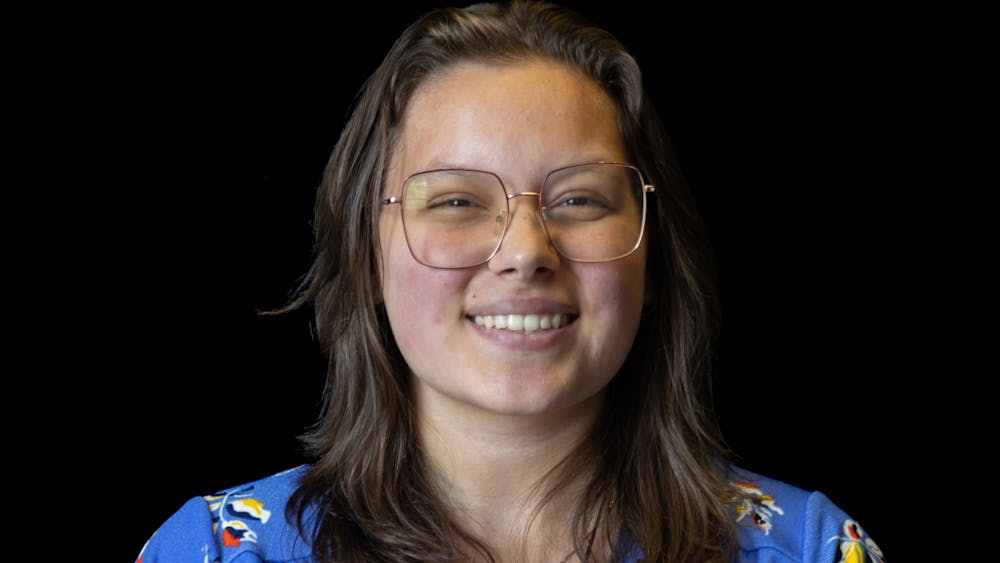University emphasizes options after suicide attempts
There have been four suicide attempts by Central Michigan University students since Jan. 31 -- three on campus and one off campus.
Once the situation is diffused and the patient is taken to the hospital, friends, family and the patient might not know what comes next. Fears come to mind of being kept in a hospital, of not being able to return to school.
If a student does attempt suicide, they are initially taken to McLaren Central-Michigan to treat any injuries they might have suffered. Lt. Cameron Wassman of the Central Michigan University Police Department said police can require that the patient receive a mental health evaluation.
Students can submit a report to CMU CARES via their website at www.cmich.edu/cmucares or by phone at 989-774-2273. Anyone with suicidal thoughts can call the Isabella County Help Line at 989-772-2918. If someone is in immediate threat of self-injury, call 911.
Depending on the results, they are either be released or sent to an in-patient psychiatric facility, such as the Mid-Michigan Medical Center in Midland.
McLaren did not return calls asking about the mental health evaluation or the hospital’s policies with patients who have attempted suicide. It’s between the patient, their family and their doctor how to move forward with treatment.
"Those decisions are really family decisions,” said Ross Rapaport, director of the Counseling Center at CMU.
Attempting suicide does not change the patient’s status as a student. However, a student could still be affected academically if they miss class.
“If you missed a month of school, could you make up all that work?” said Anthony Voisin, vice president of Student Affairs.
He said it’s between the student and their instructors if they can make up missed classwork or have the class marked as incomplete.
“We will assist them the best we can, but we can’t request requirements change,” Voisin said.
The Code of Student Rights, Responsibilities, and Disciplinary Procedures states, “a student shall not engage or threaten to engage in self-injurious behavior that negatively impacts or is disruptive to the learning/living environment of others.”
Voisin said students can be referred to the Office of Student Conduct if threats of self-harm negatively impact others. The office would refer them to the Counseling Center, he said, depending on disruption in the community.
Voisin also said a student cannot be expelled for a suicide attempt because depression and suicidal feelings are considered a disability under the American's with Disabilities Act.
Rapaport said some students choose to either leave CMU after recovery, or wait a semester before returning.
If they decide to return, the Counseling Center works with the CMU Care Team program to help that student transition back into classes.
This team creates individualized plans for students who have been reported to be struggling with health, overall wellbeing, safety or academic success.
Rapaport said students can request help from Student Disability Services if depression has effected their schoolwork.
Counseling is not required once a student who has attempted suicide returns, though Rapaport did recommend students accept any help they need.
All counseling sessions are confidential and free. If a student is having suicidal thoughts, they can receive an appointment the same day.
Last November Central Michigan Life reported that the wait-list for individual counseling sessions at the Counseling Center had 83 students. As of Feb. 12 there are only three, all of whom are waiting for a specific counselor. Rapaport said the center had hired new employees to help manage the workload.
There are nine full time counselors at the Counseling Center, another counselor who spends time between the center and Sexual Aggression Peer Advocates, five part-time employees, one intern, three doctoral students and one Master’s degree student studying social work. Rapaport said the demand for counseling increases around the middle of the semester.
Rapaport says he receives several calls a week, though few are about suicide. Often they come from faculty, staff and other students concerned that a student has been suffering from depression.
“It’s common among this age group,” Rapaport said.




